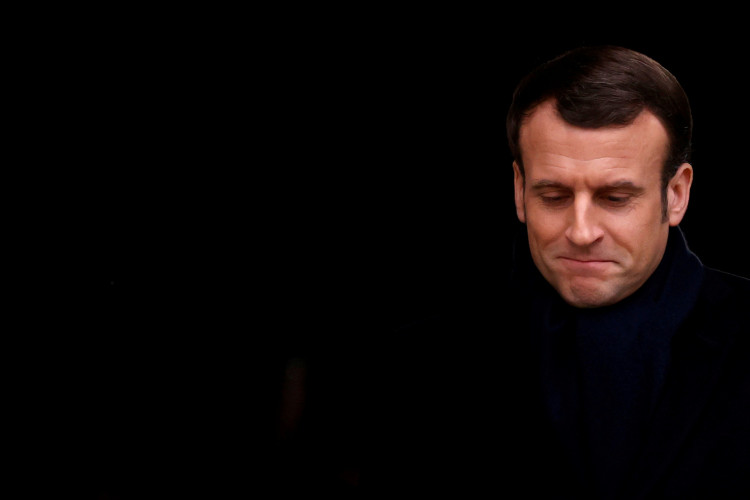The European parliamentary elections have sent shockwaves through French politics as the far-right National Rally party secured over 30% of the vote, significantly outperforming President Emmanuel Macron's Renaissance party, which garnered less than 15%.
In response, Macron announced an early dissolution of parliament and new elections, aiming to thwart the rise of the far right. This high-stakes gamble by Macron has rattled investors, causing French stocks to drop sharply on Monday, with the spread between French and German government bonds reaching its highest level since December, and the euro falling to a one-month low.
In Paris, the CAC 40 stock index fell by as much as 2.4%, while shares in major French banks plummeted up to 9%. Analysts suggest that the upcoming early vote could be the defining moment for Macron's economic policies. Since taking office in 2017, Macron's economic agenda has generally reassured investors and businesses. However, if his ruling party loses control of parliament and government, efforts to close budget gaps will become significantly more challenging.
Last month, S&P Global Ratings downgraded France's sovereign credit rating, citing concerns that the government deficit would remain above 3% of GDP until 2027. France's fiscal watchdog has criticized the government's deficit strategy for lacking coherence and credibility, and the International Monetary Fund has called for "substantial" additional efforts.
"Macron is taking a domestic policy gamble that could stall reform efforts," analysts noted.
Despite massive spending to shield households and businesses from the impacts of the COVID-19 pandemic and the energy transition, Macron's administration has emphasized long-term savings and growth-friendly reforms in pensions, labor laws, and the welfare system. Under his leadership, France's unemployment rate has significantly declined, and the economy has demonstrated resilience in facing crises compared to other European nations.
However, his economic policies have faced growing opposition in parliament and from street protests. Since losing the absolute majority in the National Assembly in 2022, Macron has struggled to pass legislation to achieve his governance goals. The defeat in Sunday's European parliamentary elections is the latest warning sign.
Nonetheless, analysts point out that the upcoming snap elections at the end of the month are unlikely to yield a clear majority in the National Assembly unless there is an extraordinary moment of unity among the fragmented political groups. More challenging is the potential for far-right National Rally leader Marine Le Pen to secure a majority, which would effectively end Macron's economic leadership. Analysts warn that if the right-wing controls the National Assembly, it would block any economic reform plans, maintaining a pessimistic outlook on French bonds, given the already dire deficit situation.
On Monday, the yield on France's 10-year government bonds rose by as much as 13 basis points to 3.23%, widening the spread with equivalent German bonds to 55 basis points, the highest since December.
The political turmoil also affected the euro, which fell by up to 0.6% against the dollar to $1.0733, the lowest in a month. Since mid-April, traders have increased their bets on a rate cut by the European Central Bank this year, nearly wiping out a 2% gain in the euro.
Despite Macron's efforts to implement a €20 billion ($21.5 billion) spending cut plan to address fiscal indicators worsened by weak growth at the end of last year, a long-term plan to reduce public debt remains necessary. S&P Global stated that the budget deficit would remain above 3% of GDP until 2027. Analysts suggest that the recent downgrade of France's sovereign rating might lead investors to question European governments' ability to support economic recovery.
Le Pen described Macron's management of public finances as "disastrous," though it remains unclear what specific tax and spending policies she would adopt. Her party has previously proposed measures such as cutting sales tax and reducing fuel taxes.
Meanwhile, the center-right Republicans, potential allies of Macron's party, have criticized his fiscal policies and threatened to topple the government with a vote of no confidence. On the other hand, left-wing parties have called for higher taxes on multinational corporations and the wealthiest individuals to reduce public debt, a measure repeatedly ruled out by Macron's administration.






